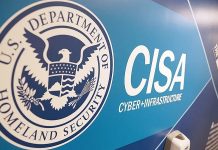The Federal Communications Commission (FCC) has taken its most aggressive action yet against robocall facilitators, cutting off more than 1,200 voice service providers from the U.S. telephone network for failing to comply with mandatory anti-robocall safeguards.
The providers were removed from the FCC’s Robocall Mitigation Database after failing to submit accurate certifications demonstrating compliance with caller authentication requirements. This move impacts nearly half of the 2,400 companies that received non-compliance warnings late last year.
“Illegal robocalls pose both a nuisance and a cybersecurity threat to U.S. households,” FCC Chair Brendan Carr said. “Providers that refuse to implement caller authentication protocols have no place in our communications infrastructure.”
Targeting Gaps in Caller Authentication
At the core of the enforcement action is STIR/SHAKEN, the caller ID authentication framework designed to prevent number spoofing and make robocalls traceable. Telecom providers are required to certify STIR/SHAKEN adoption across all IP-based services and submit detailed mitigation plans. Those that fail face removal from the intercarrier routing ecosystem and can only regain access through explicit FCC reauthorization.
While the FCC has invested an estimated $250 million into supporting the STIR/SHAKEN rollout since 2020, the protocol remains limited. It only applies to modern VoIP networks, while legacy infrastructure continues to provide cover for robocallers who exploit unprotected pathways.
Coordinated Enforcement
Monday’s removals follow “Operation Robocall Roundup,” an initiative involving state attorneys general that earlier issued warnings to nearly 200 telecom companies. In parallel, the FTC has flagged over 2 million complaints of unwanted calls in the past fiscal year, with more than half tied directly to robocalls.
The FTC has also tracked 31 VoIP providers as responsible for facilitating more than 450 robocalling campaigns, underscoring how a relatively small pool of service providers amplifies the problem.
Escalating Penalties
Recent penalties suggest regulators are prepared to get tougher with violators. In one high-profile case, Lingo Telecom agreed to a $1 million fine after transmitting AI-generated robocalls impersonating President Joe Biden during the New Hampshire primary. That incident spurred updated FCC reporting rules targeting providers that facilitate election-related or synthetic voice scams.
Ongoing International Threats
While Monday’s enforcement represents a major step against domestic providers, challenges remain abroad. Many large-scale robocalling operations originate overseas, where U.S. regulators lack jurisdiction. This makes international cooperation critical to any long-term mitigation strategy.
For consumers, the FCC’s actions signal a more proactive stance against what Carr recently described to Congress as “probably the number one issue” raised by the public. But as threat actors evolve and exploit gaps in older networks, regulators will need continued technical and policy innovation to stay ahead.







